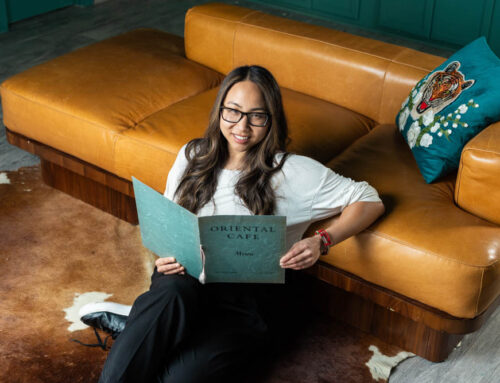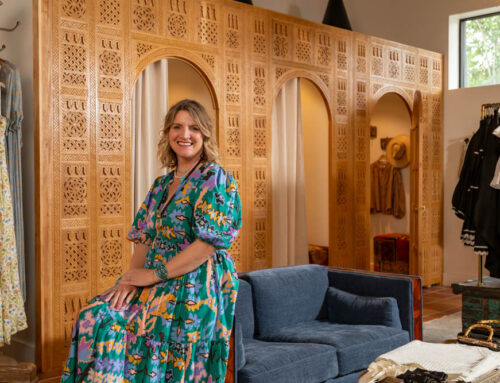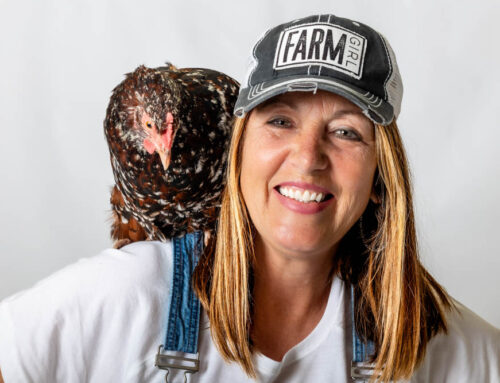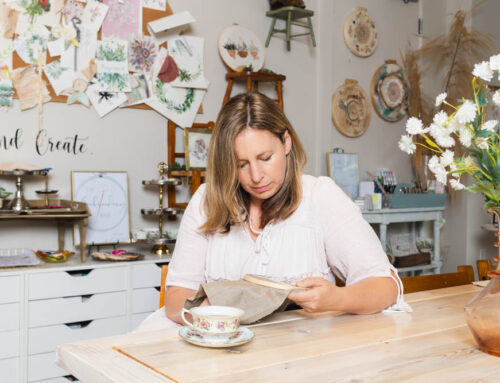Occupational therapist Lucy Aguirre-Kelly describes a scene familiar to her audience of breast cancer survivors: You’re in a hospital bed, clad in the standard-issue gown, weak, hooked up to monitors.
But when your family sees you, why doesn’t anyone want to touch you?
“They’re afraid of hurting you,” suggests one woman. “They’re afraid of their own mortality,” says another.
“We try to incorporate families into relaxation techniques,” Kelly-Aguirre says. “Our job is to remind them their touch is extremely powerful.”
Aguirre-Kelly and Regina McCarthy are at the New Beginnings support group at Baylor Medical-Sammons Cancer Center to talk about the healing power of touch. The 10 or so neighborhood women gathered join in some visualization exercises, ask questions and listen.
Support groups such as these, sponsored by numerous hospitals or the American Cancer Society, are one way women with breast cancer cope with the disease and its aftermath.
Increasingly, women and their advocates in the medical community are recognizing that healing doesn’t end with caring for the physical self.
“Illness separates the physical self from the spiritual being,” Aguirre-Kelly says. “We look at the person as a whole person. We look at roles a lot: mother, wife, worker, and deal with those.”
HOW SURVIVORS COPE
Neighborhood resident Susie Straus says she was sad when she received her diagnosis two days after her daughter graduated from Lake Highlands High School. But she wasn’t shocked.
Her mother died of breast cancer when Straus was 15, and she knew her family history put her at risk.
“I feel more comfortable on this side of breast cancer than the other, when I would worry about every mammogram,” Straus says. “It was not: Why me? It was” Why not me?”
Part of her sadness stemmed from the realization that her two daughters and sister now had an even greater chance of getting the disease.
Straus underwent a bilateral mastectomy (where both breasts are removed), followed by chemotherapy and reconstruction. She worked out throughout the procedures and faithfully went to her regular massage therapist. Loving friends and family also bolstered her spirits.
Today, Straus is a volunteer with the American Cancer Society’s Reach for Recovery program. She visits women after their surgery with a package of health information such as suggested exercises. She also volunteers with the Dallas Chapter of the Susan G. Komen Breast Cancer Foundation as a speaker.
“I just want to share my experiences with others,” she says. “To show that you can survive and get back to normal life. It’s not a death sentence.”
“Most of them are going to survive and get back to a very normal life,” she says. “They are going to look back on this as a hurdle they crossed and will be very proud of themselves.”
“It’s a scary thing to have; it’s a wonderful thing to survive.”
The number of survivors also heartens neighborhood resident Elaine Prude, who was diagnosed from a mammogram taken in 1996.
“You should know that so much has been done now for breast cancer, people don’t have to be doomed,” Prude says.
“There are an awful lot of survivors. At the Race for the Cure, you will see so many running with those pink baseball caps. People do very well.”
Prude received a lumpectomy shortly after her diagnosis. She was required to undergo 33 radiation treatments, and she took one each day five days a week as a result. She still takes an anti-cancer drug and must do so for five years.
Like Straus, Prude had already faced cancer among loved ones. Her husband had undergone major surgery and radiation to combat a malignancy of the vocal cords. One year later, their son was diagnosed with testicular cancer.
“I thought: Here we go again,” Prude says.
Her response was to investigate her choices fully in order to get the best treatment possible. Taking control of her care was crucial in the treatments.
“I needed a surgeon, radiation oncologist and a breast oncologist,” Prude says. “My job was to find the very finest medical care in Dallas.”
Prude also is passionate about the volunteer work she does with other women with breast cancer. She volunteers with the Race for the Cure and once a week at the radiation department at Presbyterian Hospital, where she talks with new cancer patients.
“They can hardly believe that two years ago I was a patient there,” Prude says. “It’s very surprising to them.”
“I probably benefit as much from that as the patients do,” she says.
“They say: You look so well. And I tell them: Well, I am well.”
A COMMON LANGUAGE
In visiting the New Beginnings breast cancer support group, it’s easy to see the camaraderie and simple understanding that bring these women together.
They’ve been there. They know the fears. They understand the jokes.
The non-staff facilitators for this group are Lynne Lofgren, diagnosed 15 years ago, and Barbara Depriest, diagnosed 10 years ago.
In addition to their work with New Beginnings, both women volunteer at Baylor to work with newly diagnosed breast cancer patients.
“It gives them a little hope,” Depriest says. “They ask how long I’ve had it.”
“We speak the same language.”
Both women say they volunteer because they received so much support from Baylor staff and volunteers during their diagnosis. They want to help the way they were helped.
“You feel closer to women who have gone through it and understand your feelings,” Lofgren says. “Friends and family are not as comfortable. They want to fix it.
“Here, you can say whatever you want, and it doesn’t leave the room.”
SOURCES OF SUPPORT
Breast cancer survivor Joni Pactor, a social worker in oncology with Medical City Hospital, speaks of “the common thread of having been there,” as well as the educational component of staying informed about the latest breast cancer research and information.
Untrue stereotypes exist about the groups, she says.
“There are times when touchy subjects come up,” she says. “But it can be very positive: a lot of laughing, a lot of sharing. It’s not just a lot of crying, as some people think.
“It kind of reaffirms that people can and still do go on and do things. It doesn’t have to immobilize you,” she says.
“It shows there can be a future. Sometimes when you’re going through it, you don’t think that.”
Pam Jensen, a licensed counselor who leads a breast cancer support group and a group for families at Presbyterian Hospital, says she tries to tell women hesitant to get involved in a group what it’s really about.
“They think you have to go in and spill your guts, and they are private people who do not want to do that,” she says.
“This is not like a psychotherapy group where you may be pushed to talk to reach a breakthrough. We don’t push.”
Jensen says the benefits of an effective support group are to decrease isolation, give opportunities to express feelings honestly, share information, foster hope and provide real-life role models.
“With many role models, you see them after the fact, after they have their life all together, and it looks great,” Jensen says.
“It’s almost like a role model that is too hard to live up to. Here, there are real-life models for women coping with this illness.”
The women also have seen patients thrive by depending on other resources: faith and church community; time with family and friends; meditation or relaxation techniques; one-on-one counseling; research through books or the Internet.
“Find out what your resources are,” Jensen says. “Stay involved in life. Cancer patients do best when they stay involved in normal things they enjoy.”
“That may mean banking your energy for certain activities, like attending your child’s soccer game. Put what’s important to you first.”
SEARCHING FOR ANSWERS
Dr. Marjorie Hatch, a Lakewood resident who is a clinical psychologist and SMU instructor, has completed one study at Baylor Medical Center related to support groups for women with breast cancer. She is conducting a separate study using psychological techniques in an effort to reduce nausea and vomiting among breast cancer patients undergoing high-dose chemotherapy treatment.
“As a woman, I’m interested in women’s health issues,” Hatch says. “Breast cancer is such a common form for women. I wanted to try to make life better for those dealing with it.”
In her first study, Hatch compared two support groups. The first was a traditional support group focused on sharing personal experiences. The alternative model group presented specific coping strategies such as relaxation yoga, meditation and therapeutic writing. The women in this group would practice the techniques during the meeting.
Hatch found little difference in the effectiveness of the two groups.
“Everyone seemed to cope better at the end and indicated they enjoyed the group,” Hatch says. “The take-home message would be to investigate and decide which type of group fits your needs.”
Women with breast cancer face all the issues facing anyone with a life-threatening illness, and some specific to their illness. Some of these include:
- Sexual/social issues: The psychological or sexual consequences may be to feel less womanly. For younger women, the treatment may induce menopausal symptoms. These women must cope with no longer being able to have children.
- Loss of work-related social support: Women may have to take time off from work, losing financial support and sense of competence as an employee. “You’re not an employee anymore,” Hatch says. “You’re a patient.”
- Existential: Issues of dying, and mortality in general, must be faced. That includes practical matters and also spiritual issues. “It’s a time to re-evaluate issues with your God,” Hatch says.
- Financial: Paying for costly care, which “many people in my studies tell me is one more nightmare.”
These and other issues are put on the back burner when women are first diagnosed, Hatch says. Medical personnel focus entirely on determining appropriate treatment and moving quickly.
“The medical issues are overwhelming,” Hatch says. “Whatever psychological and social issues they are dealing with are shunted to the side.”
“In some sense, there is an expectation that once the medical treatment is over, the woman should be fine. Most aren’t.”
TAKING AN ACTIVE ROLE
A coping technique more involved than support groups is to take on an advocacy role. The Dallas Chapter of the Susan G. Komen Breast Cancer Foundation promotes one such advocacy network. The work may involve education, fund-raising or being a spokesperson.
“That involves a bigger scale than our own needs,” Hatch says. “They have chosen to come to terms with it by helping other women.”
Breast cancer may lead to common experiences. But women’s responses are “so individual,” Hatch says. Some people choose to identify themselves as cancer survivors; others won’t, saying that the illness happened and is over.
Hatch describes one extreme as believing that you haven’t changed at all. The other is to not feel like your “old self” at all. Most women eventually make their way to comfortable ground.
“Life experiences change us,” she says. “You can’t take back what happened. You have to come to terms with it.”





